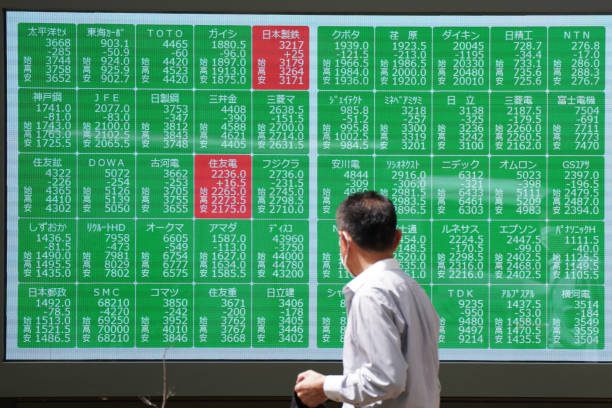
Stocks held steady on Tuesday as the dollar edged toward its largest monthly decline in years, with investors preparing for the impact of the trade war on both corporate earnings and economic data.
President Donald Trump’s tariffs have shaken investor confidence in U.S. assets. While several reversals have allowed the S&P 500 to recover a significant portion of its early April losses, the dollar has only managed to stabilize rather than fully rebound.
The dollar slipped overnight following comments from U.S. Treasury Secretary Scott Bessent on CNBC, who stated that it was “up to China to de-escalate” the situation. Tariffs on most U.S. exports to China have reached 125%.
A Japanese holiday reduced currency trading volume in the Asia session, leaving most currency pairs unchanged. However, the euro rose to $1.1409, marking a 5% gain for April, positioning it for its largest monthly gain against the dollar in nearly 15 years. Meanwhile, the dollar saw a 7% decline against the Swiss franc, its steepest drop in a decade.
Futures for both the Nikkei and S&P 500 drifted higher, buoyed by expectations of a potential easing of automotive tariffs. Still, investors are hoping for more significant relief, particularly concerning the steep 145% U.S. tariffs on Chinese goods.
China has made some exemptions but has refrained from introducing stimulus measures, assuming that the U.S. will cave first. China’s foreign ministry also confirmed that President Xi Jinping has not recently communicated with President Trump, contradicting Trump’s earlier statements suggesting negotiations were underway.
With the first-quarter GDP and April job figures due later in the week, analysts from J.P. Morgan expect front-loaded purchases aimed at avoiding new taxes to support the data. However, a recent drop in China’s exports suggests that a reckoning could be approaching.
J.P. Morgan analysts warned, “The clock is ticking on hard data resilience,” noting that China’s shipments to the U.S. had fallen by 42% in the last 10 days. If this trend continues, it could have significant ripple effects on global supply chains. “A worrying decoupling of U.S.-China trade now seems to be underway, and we expect the damage to grow in the coming weeks and months.”
Aside from U.S. economic data, investors are keeping an eye on Canada’s election, which is expected to see the return of the Liberals to power, as well as upcoming inflation data from Spain and Belgium on Tuesday.
Power was gradually being restored across parts of the Iberian Peninsula late on Monday following a massive outage that paralyzed much of Spain and Portugal.
The weakening dollar has driven gold prices higher, with the precious metal reaching $3,333 an ounce on Tuesday, a nearly 7% increase for the month and a 27% rise for the year so far. Meanwhile, Brent crude was slightly lower at $65.68 a barrel.
Treasury trading was inactive in Asia due to Japan’s holiday, leaving the 10-year Treasury yield at 4.206%, with futures remaining relatively unchanged.
RRF: REUTERS


















